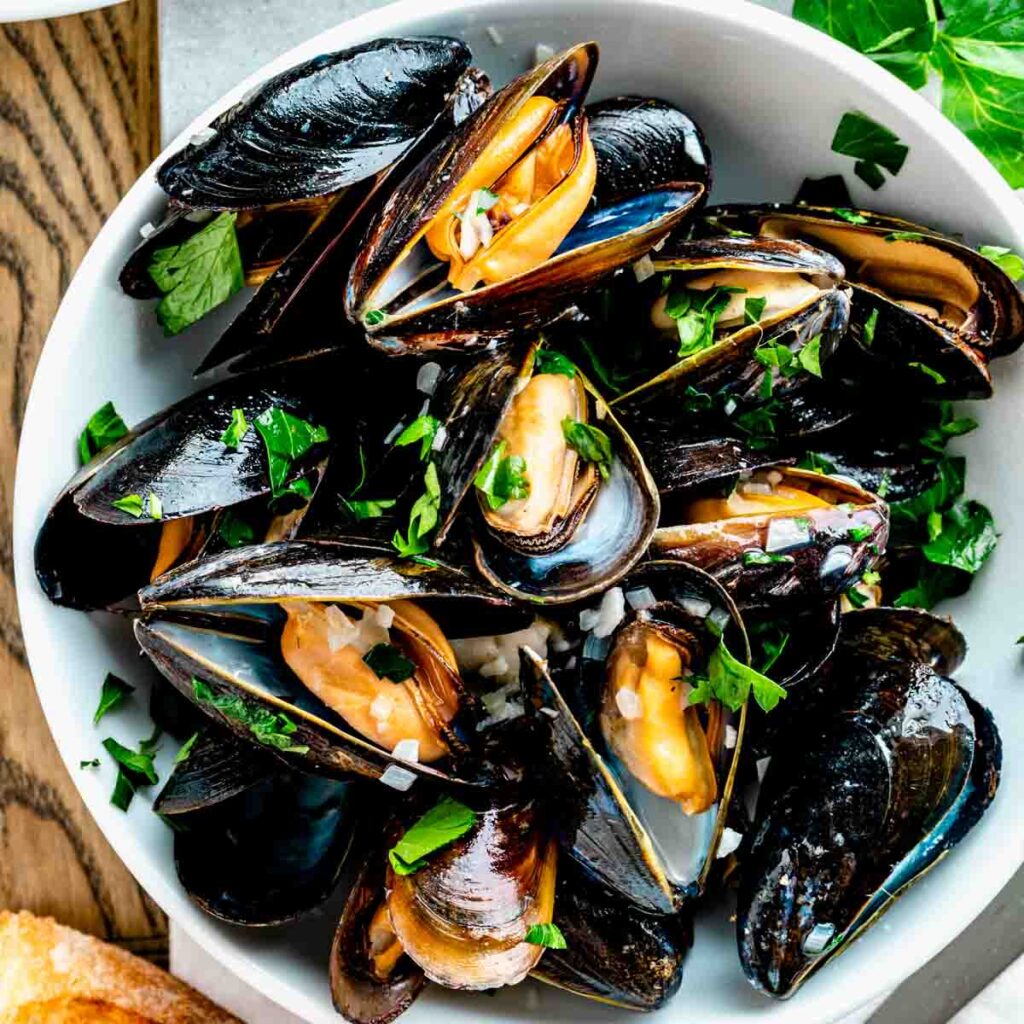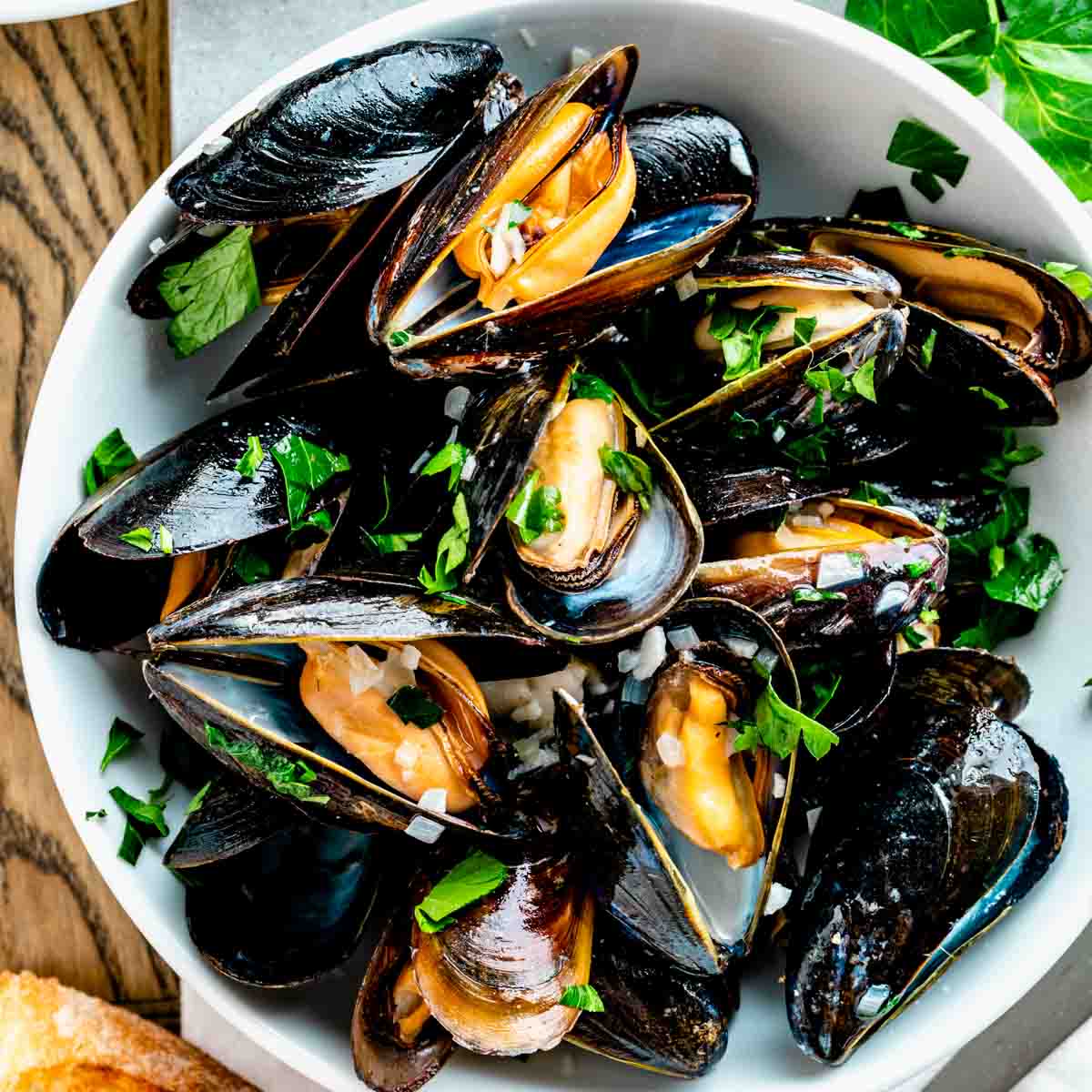
Mussels, the unassuming shellfish found in oceans and freshwater bodies worldwide, offer a delightful culinary experience and a wealth of nutritional benefits. These bivalve mollusks have been enjoyed for centuries, gracing tables across diverse cultures with their unique taste and culinary versatility. In this article, we will delve into the world of mussels, from their natural habitat to their significance in the kitchen, while highlighting their remarkable health advantages.
A World of Diversity
Mussels encompass a variety of species, each with its own distinct characteristics. The most commonly consumed species is the blue or common mussel (Mytilus edulis), prevalent along the coastlines of Europe, North America, and Asia. Other notable varieties include the Mediterranean mussel (Mytilus galloprovincialis) and the New Zealand green-lipped mussel (Perna canaliculus).
Nutritional Powerhouses
Mussels are celebrated for their exceptional nutritional profile. They are a valuable source of lean protein, providing essential amino acids necessary for various bodily functions. Additionally, mussels are rich in vitamins, including vitamin B12, vitamin C, and folate, which contribute to energy production, immune support, and cell development. These mollusks also offer essential minerals like iron, zinc, and selenium, further enhancing their nutritional value.
Culinary Versatility
Mussels have earned a well-deserved reputation in the culinary world for their delicate flavor and adaptability in a wide range of dishes. They can be prepared using various cooking methods, such as steaming, baking, grilling, or even incorporating them into soups and stews. Mussels serve as the centerpiece of mouthwatering recipes, such as classic French moules marinières, where they are steamed in white wine, garlic, and herbs.
Health Benefits
Consuming mussels can contribute to a healthy lifestyle in numerous ways. The omega-3 fatty acids found in these shellfish are known for their anti-inflammatory properties, which may help reduce the risk of chronic diseases like heart disease. Mussels are also low in fat and calories, making them a suitable choice for those aiming to maintain a balanced diet. Their iron content supports red blood cell production, while vitamin B12 promotes nerve function and cognitive health.
Sustainable and Environmentally Friendly
Mussels are often lauded for their minimal environmental impact and sustainable farming practices. These shellfish are filter feeders, which means they help improve water quality by removing excess nutrients and contaminants. Furthermore, mussel farming requires relatively low energy inputs and has a low carbon footprint, making it an eco-friendly food choice.
You can eat an unopened mussels
Contrary to popular belief, it is not necessary to discard an unopened mussel. The misconception that unopened mussels are inedible is unfounded and we’re here to debunk that myth. When a mussel remains closed after cooking, it does not indicate spoilage. It simply means that the mussel has exceptionally strong adductor muscles that are difficult to open naturally. However, you can easily pry it open using a knife, and the mussel inside will still be perfectly safe and delicious to consume. This misconception has persisted without valid reasoning, and it’s time to set the record straight with the truth about mussels.
You will detect the scent of a spoiled mussel
Before you even taste it, you can rely on your sense of smell to determine if a mussel is spoiled. Contrary to the misconception that unopened mussels are the ones to be wary of, the truth is that a foul odor will be the clear indicator of a bad mussel. The unpleasant smell emitted by a spoiled mussel is unmistakable and unforgettable. It’s a scent that you simply cannot overlook or easily dismiss.Therefore, it is crucial to trust your sense of smell when it comes to assessing the freshness of mussels

At Seafood Society, we propose different kinds of fresh mussels coming from Europe and Australia.
We have establish our reputation for delivering the freshest seafood in the shortest possible time while ensuring complete traceability from the boat to your plate. Our supply chain operates with utmost efficiency as we closely collaborate with small wholesalers who directly purchase from fishermen through daily fish auctions. By choosing us, you can be certain about the origin of the product and enjoy 100% traceability.
To learn more about our sourcing process and our commitment to seafood quality, please click here to visit our website.






 No products in the cart.
No products in the cart. 
